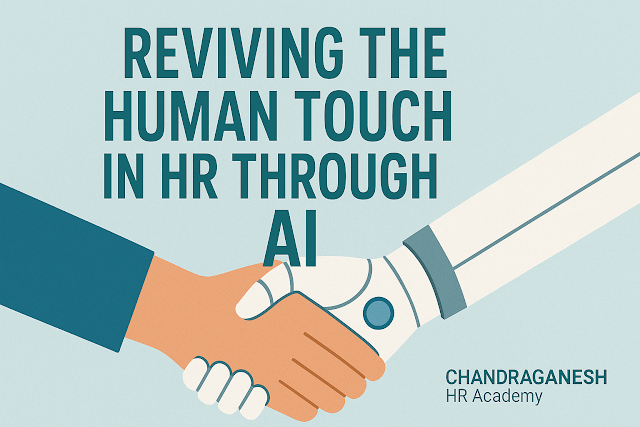
The Shift in HR: From Technology Overhaul to Human Reinvention
In recent years, many big companies in India and around the world have upgraded their HR departments using technology. It started with tools like ERP systems and later expanded to software that helps manage things like employee records, payroll, and leave applications.
These changes were meant to make life easier—for both employees and HR teams. For example, if someone wants to check their salary slip or update family details for health insurance, they can now do it online without calling HR.
This shift made sense, especially when one HR person has to manage 500 or even 1,000 employees. Using self-service tools helped save time and reduce workload.
At the same time, companies started growing fast by merging with or buying other companies. This helped them increase profits without hiring a lot more staff.
But here’s the downside: In trying to make things faster and more efficient, we’ve lost the “human” side of HR. Many employees now feel like they’re just dealing with systems or submitting tickets—even when they need help with serious personal or workplace issues.
Can AI Restore the Human Connection at Work?
Important Skills That AI Can’t Replace
According to job reports, roles that need people skills—like talking, listening, handling emotions, and solving conflicts—are less likely to be taken over by AI.
Jobs in healthcare, hospitality, teaching, and retail are safe because they need real human interaction.
This gives HR a big opportunity: to help all employees build these important “power skills” such as:
-
Speaking clearly and confidently
-
Understanding others’ feelings
-
Listening carefully
-
Negotiating and resolving issues
-
Being flexible and adaptable
The good news? These are the same skills that many HR professionals already have!
How AI Can Help HR Add More Value
If we use AI wisely, it can take care of routine, boring work—like writing emails, scheduling meetings, or checking data. This gives HR professionals more time to focus on people: supporting employees, solving real problems, and helping teams grow.
Every person is different, and HR should create solutions based on each person’s needs—not just follow the same rulebook for everyone.
Using AI to Improve Employee Engagement
Most companies ask employees to fill out feedback forms once a year. Then they give the results to managers and hope they fix things. But often, the real issue is the manager’s behavior—and a survey can’t fully capture that.
Also, many employees are tired of surveys and don’t take them seriously anymore.
In one real-life case, a company thought employees were quitting due to low pay. But after digging deeper, HR found that full-time staff and contract workers weren’t working well together. Fixing this helped more than just giving raises.
In the future, AI tools that track mood or sentiment could help HR spot these problems early and act quickly.
Changing How We Train Employees
In tough times, the training team is often the first to face budget cuts. This is a big mistake. Good training helps people do better, feel more engaged, and stay longer.
Currently, leadership training is given only to a select few. But what if every manager got a personal coach—like how new nurses get guidance from experienced ones?
AI can help make learning personal and available to everyone, not just top performers.
Making Performance Reviews Better
Let’s be honest—no one enjoys performance reviews. Managers, employees, and HR all find it stressful. Some companies even stopped doing them. But then employees started missing honest feedback and career discussions.
Now, AI can help write reviews faster, so managers can spend more time having real conversations. But HR must still check for fairness and make sure reviews aren’t biased.
A good performance system should:
-
Link employee goals with company goals
-
Encourage teamwork and responsibility
-
Recognize and reward progress
With support from HR, reviews can become a helpful and positive experience—not just a formality.
The Best Gift AI Can Give HR: Time
AI can give us more free time by handling repetitive work. At first, we might not know how to use that time—we’re so used to being busy! But this free time lets us truly connect with our team, help others, and even spend more time with family.
This is how we bring back the “human” in Human Resources.
A Quick Exercise for You
Take 5–10 minutes to think:
-
If you had more time, what part of your HR job would you focus on?
-
What would you stop doing?
-
What makes you feel happy and proud in your work?
Are you ready to use AI not just to work faster, but to make work more meaningful? Comment your opinion here.




.png)


0 Comments